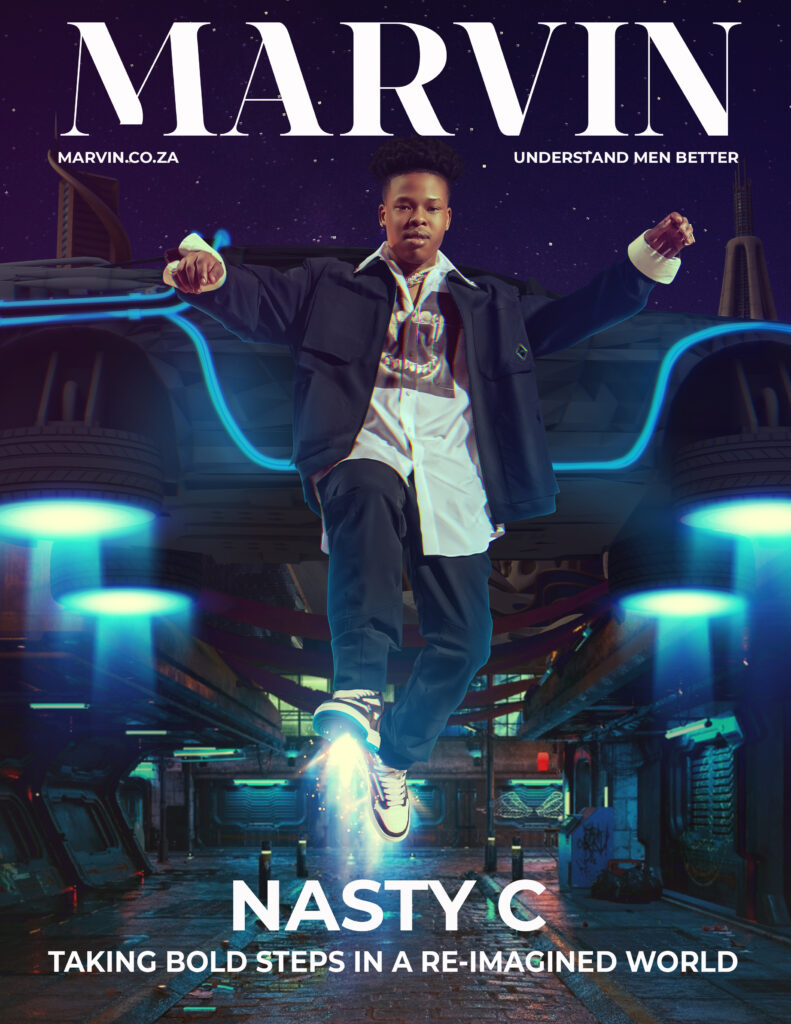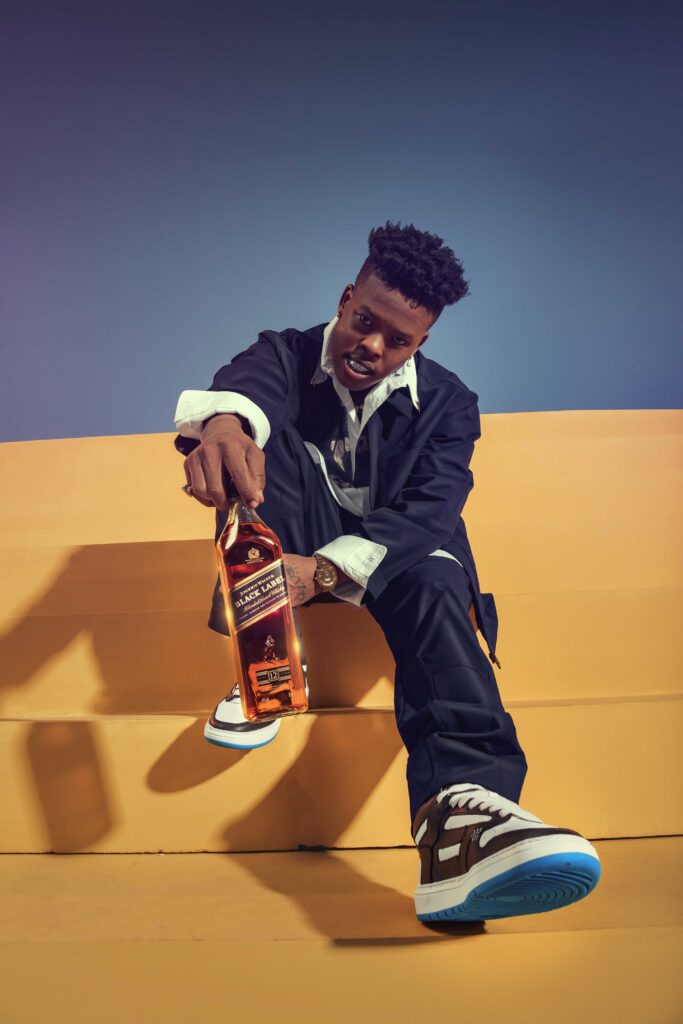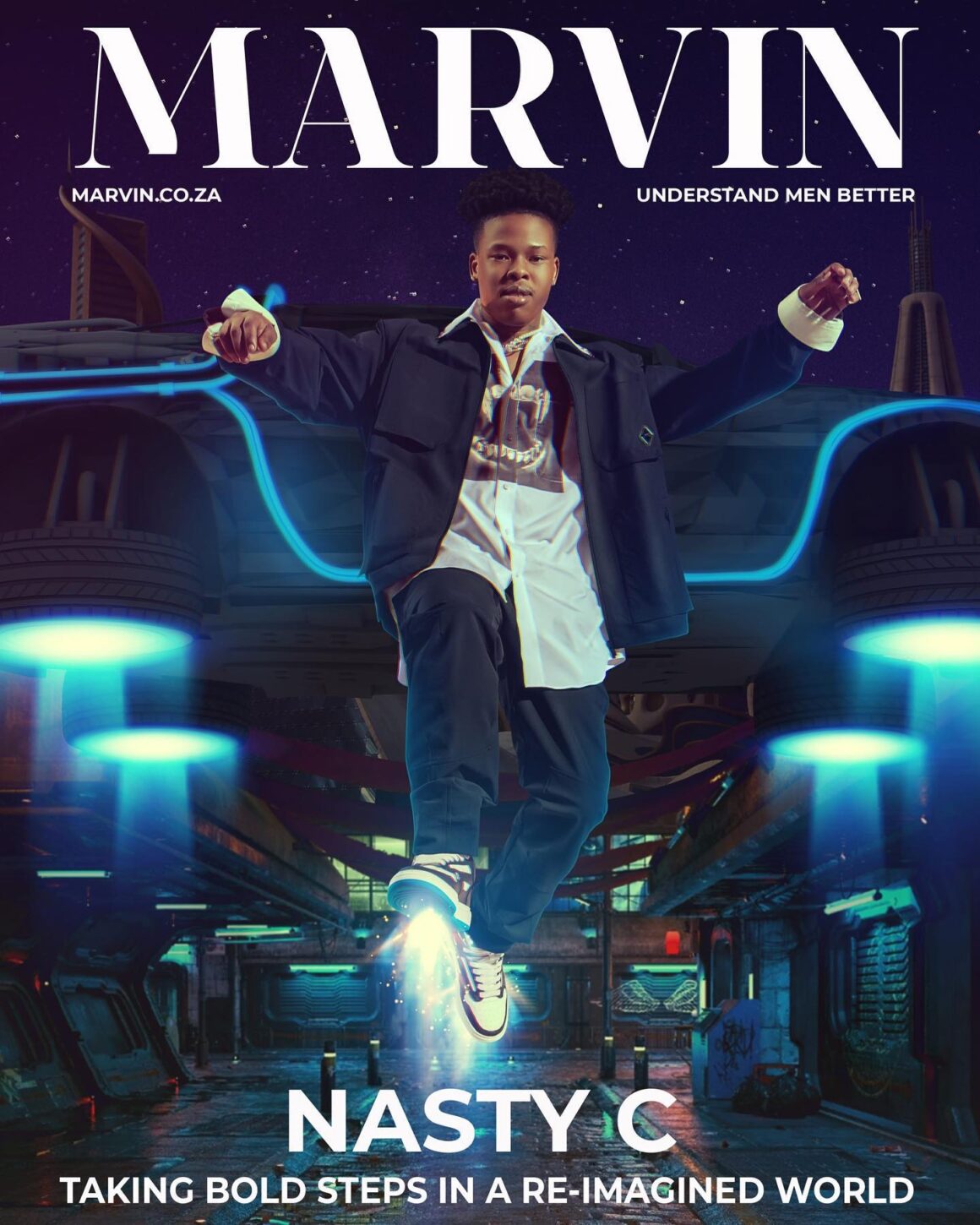Being a pioneer at a very young age is not something that most of the iconic people in the world can lay claim to. To pioneer at a very young age and still leave a legacy that surpasses even your lifetime, that’s exceptionally rare, to say the least. Perhaps this is why very few people know that Johnnie Walker was only 15 when he became the manager of a grocery store that laid the foundation to the creation of his now-iconic brand of whiskey. In line with collective progress and taking strides, the Johnnie Walker brand recently announce their new Walkers programme aimed at holding nothing back to break down barriers and stereotypes.
In the local hip hop scene, there’s a young man who broke through artistic stereotypes at a similarly young age. He goes by the name Nasty C and, to be honest, there’s something strange about Nasty C. It’s not only that he didn’t just come into the local rap scene more than he unhinged the whole door. But the strangeness of the curious case of Nsikayesizwe David Junior Ngcobo is that when he dropped “Juice Back” back in 2015, he came out swinging heavy OG energy at just 16. The punchlines landed too, we braced ourselves for that hook. The inference that this was a “comeback” didn’t fly over our heads either, it connected because the certainty in his delivery felt as though Nasty C was a veteran coming back. As the track reverberated throughout the country it became clear that he had solved a problem that the industry didn’t know that it had. “Nasty found us chilling in the rap game”, said Casper Nyovest, “nobody was trying to prove they can rap and then Nasty came out and he was rapping…” This is the spirit that drew the Johnnie Walker brand to the young icon, his clear intention to take big and bold steps towards creating the kind of space he wanted.
The contrast between his 2012 debut mixtape “One Kid, A Thousand Coffins” which he dropped when he was 14 and his current 2020 album “Zulu Man With Some Power”, in just name alone shows that Ivy’s son has grown. That was the name of his tour that he launched in 2017, Ivyson, paying homage to his late mother who he refers to as his Spirit Guide. That growth has been more than just in his age but in his music and his sense of identity too. In a Netflix doccie, he mentions that it took time to fully grasp the cultural gravity of his Zulu birth name, Nsikayesizwe, and to grow into its meaning, pillar of the nation.
He makes a point to say that Nsikayesizwe and Nasty C are two different identities, and he has made a conscious effort to keep them separate. “Learning more about my culture made me more confident as an artist and has made me a little more creative in the sense of incorporating my traditional drum patterns”, he explains. “Other than that, they are two separate (identities) that I like to keep apart because when I tap into my traditional side I’m usually with my family”. The sacredness of his cultural identity is a sentiment he drives home in the “How Many Times” line; “When you hop inside the ride, it’s like ngishis’ impepho…”Such stances resonate strongly with a brand that is a proud of catalyst for change, making it a no-brainer for Johnnie Walker to take interest in one of the boldest trailblazers South Africa has grown to know and love in recent years.

His ability to keep separate aspects of who he is has been at the core of the peculiar nature of his longevity and why it seems he never changed, never switched up. He understands the allure of mystery especially in the social media era where the perception of access to the private lives of artists breeds a voyeuristic relationship where we care more about the drama than about the art. He has been unapologetic about how he curates his online presence to make sure that the only window into his life is through his music.
The now-iconic hit “SMA” which features Cape Town based singer Rowlene was probably as vulnerable as we have ever encountered Nasty C. It got eyebrows raised with speculation about whether the song was a confession or if he was just gassing the hype machine. In many ways though, he has starved the drama hounds and kept his beef lean even though there have been instances where the Twitter streets have tried to draw him into skirmishes, he handled it with speed.
The similarities between the Johnnie Walker brand and Nasty C’s peculiar approach to managing his life and online presence constantly overlap, this new Walker’s Programme encourages people to unapologetically and boldly be themselves as a means to contributing to progress and change.
Another thing that Nasty C has managed to do that the bulk of his peers have been unable to is not just landing collaborations with some of the biggest names in rap music but being able to hold his weight in solid bars. The fact that the remix of Juice Back featured two of the biggest names on the continent, Casper Nyovest and Davido, is a testament to the respect that he has garnered just from the strength of his flows alone. Being able to trade verses with alumni lyricists like Stogie T and young guns like Blxckie and Tshego has also made him a kind of crossover act in the sense that he can move comfortably between the different dialects of local hip hop where he can keep the old heads nodding and still dish out club bangers.
Despite his knack to squad up with different artists, his process of songwriting is ironically solitary. For him, “if you are a creative who wants to explore all depths of creativity, you need to be alone”. While for most artists, especially in hip hop, the idea of being constantly surrounded by an entourage as well as a production crew is ideal, he begs to differ. Using solitude as a tool is an approach that he adopted way back when he was still the kid that rushes home just to go play Mortal Kombat. “There are people like me”, he says, “who started in their bedrooms and have to do everything themselves. It’s way better that way because I can be the perfect producer that I wanna be. Or I can write the lyrics exactly how I feel them inside and not have someone else write them”. He is quick to point out too that, “not even my girlfriend gets to sit with me in the studio”.
Perhaps then it is this affinity towards solitude that has kept him grounded especially as his name reached new heights overseas, Nasty C truly embodies the Johnnie Walker ethos by constantly challenging the narrative. His growing list of international collabs is probably only single-handedly eclipsed by Black Coffee. From the chest-thumping 808 joint “King” featuring A$AP Ferg, the heartwarmingly melodic yet tragic “They Don’t” with T.I, the bouncing synths of “Allow” with French Montana, the well-groomed “Black and White” with Ari Lennox, to a personal favourite, the anthemic “Particula” where he is featured by Major Laser and Dj Maphorisa alongside Ice Prince, Patoranking and Jidenna. What stands out of all the tracks is his consistency, not just of his delivery but of his sense of self. He doesn’t seem daunted, and the features feel extremely organic. This Walkers programme is aimed at just that, encouraging South Africans to find their voice through freedom of expression without fear of prejudice the same way Nasty C found his.

The intro to “I Lie” gives a glimpse into how some of the collaborations come together as we listen in on a very candid conversation between him and the featured artist, Tshego. There is a tangible level of familiarity between them and he explains to me that his approach to picking features is generally a dynamic one.
“If it’s the other person who wants me on their song and it’s fire and I like it and it’s easy to write to, then I just do it. Then it can depend on do I know you as a friend, are you a person that I can’t charge my feature fee, like an upcoming artist, even if I don’t know you but you have a lot of potential on the song”. But Nasty C is not shy to vent out that, at the end of the day, the aim is to get “money as long as a gospel song”. “Then if you are someone who has landed on a cool song and you have the money, I’m gonna charge you”.
When it comes to international features Nasty C does confess to a certain level of being self-conscious. “I feel like the people that I want on my music are top tier people”, he explains. “I feel like I don’t deserve to have them on my music, yet. The top tier people, the ones that I have made music with, they are the ones who reached out to me”.
He speaks frankly about his apprehensions with regards to some of his ambitions. “Like, I wanna do a song with Rihanna. I wanna do a song with Young Thug, Travis Scott, Future and all those people but, it would be stupid of me to try to get them on a song right now. I would feel stupid because I feel I’m not worthy of that yet”.
It is probably that “yet” that sets Nasty C apart. His self-doubt is not rooted in defeat but a desire to lay a solid foundation on which he can maximize the impact of his work. It came as no surprise then when in 2020, he inked with the legendary Def Jam. When the news came out, it was an undeniably major move yet in many ways it was expected and most importantly, he was ready. As a brand that is committed to speaking to the human desire to improve, Nasty C’s humility and desire to strive and improve hits home for Johnnie Walker.
Nasty C followed up his earlier mixtapes with two studio albums namely; Bad Hair in 2016 (and later Bad Hair Extensions) as well as Strings and Bling in 2018. In the lead up to the release of “Zulu Man With Some Power”, he dropped a mixtape with American–Haitian Hip Hop DJ Whoo Kid called “Zulu”. When it came to the album itself, he had a beastly 48 tracks in the bag, 20 of which made the cut. What became clear with this studio release was that at 24, Nasty C has long been preparing for the time when he would no longer be seen as the “new kid on the block”. “Zulu Man With Some Power” is a declaration of sorts, a statement of power. He presents a sense of self-assuredness that is not just rooted in unbounded success but also in having had to make difficult decisions and sacrifices for that success.
We spoke about his “tv” debut on the local Netflix drama, Blood and Water which made waves, especially among his target audience. Though acting has been a particular dream of his, the experience has left him with second thoughts especially in how the scale and functioning of a drama production go against his work of process which requires long stretches of solitude. Nonetheless, it was yet another boundary broken, another memorable box ticked. It is then a natural fit to his prime form to be added to the Johnnie Walker “Walkers Programme“. His moves in the industry are paced perfectly with the strides that Johnnie Walker made in helping to create a re-imagined world that offers groundbreaking experiences. He will be joining the iconic Rich Mnisi and illustrator phenom Karabo Poppy to curate a cultural experience through which Johnnie Walker aims to break pop-culture stereotypes and blur the line between progressive change and creative greatness.
What’s next? “It’s not even that complicated, bro”, he laughs. “I wanna be big. I know this sounds like an insane goal but I want to be able to do a 20 000 capacity show in like India or Russia”. With an unrivalled presence locally and an unmatched trajectory internationally, the Coolest Kid In Africa is no longer our little friend, he’s a grown man now and the world is his.
Writer: Vus Ngxande
Photographer: Austin Malema
Art Director: Jayson Grayford
Client: Johnnie Walker
Creative Director: George Gladwin Matsheke


